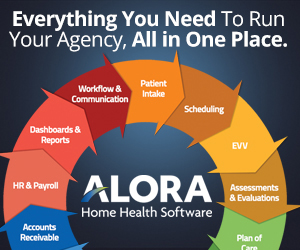 |
||||||||||||||||||||||||||
| December 19, 2024 | ||||||||||||||||||||||||||
Source: Risk Strategies
The Connecticut paid sick leave law (CT PSL) became effective in 2012 and was the first statewide paid sick leave in the country, requiring certain employers to provide employees with 40 hours of paid sick time per year. The current CT PSL law covers private sector employers with at least 50 employees, except certain manufacturers and certain non-profits.
Currently, CT PSL covers only those employees working in Connecticut who are classified as “service workers.” Service workers, as defined under the current CT PSL law, are identified by occupation code numbers and titles used by the federal Bureau of Labor Statistics, and generally cover home health aides, nurses, security guards, janitors, and cashiers, amongst other designated job titles.
Employers with existing paid leave policies that meet or exceed the CT PSL requirements under the same terms and conditions are not required to provide additional paid time off.
Source: AHLA’s Health Information and Technology Practice Group, December 12, 2024
The Final Rule to modify the Health Insurance Portability and Accountability Act of 1996 (HIPAA) Privacy Rule to support reproductive health care privacy (2024 Privacy Rule) requires covered entities and business associates (Regulated Entities) to comply with many provisions beginning December 23, 2024.[1] Complying with the 2024 Privacy Rule will require Regulated Entities to review and update their policies and procedures and ensure personnel are properly trained on the new requirements. However, recent events have made the future of the 2024 Privacy Rule and its enforcement unclear.
Source: CT Mirror
Connecticut’s Medicaid program boasts lower costs and similar levels of access when compared to peer states, according to a report by independent consultants, leading to the conclusion that employing a model known as managed care would not likely save the state money.
Source: Alliance Daily | Dec. 16, 2024
The Centers for Medicare & Medicaid Services (CMS) has issued the Contract Year (CY) 2026 Medicare Advantage (MA) and the Medicare Prescription Drug Benefit Program (Part D) proposed rule. CMS proposes several changes to these programs with the intent to hold MA and Part D plans more accountable for delivering high-quality coverage, and builds on CMS’ work to remove unnecessary barriers to care within these programs, such as reforms to prior authorizations, internal coverage criteria, and marketing.
Source: Alliance Daily, December 13, 2024
Provider preview reports for the February 2025 Care Compare refresh were made available in the Certification and Survey Provider Enhanced Reports (CASPER) application on November 13, 2024. The preview period for this Provider Preview Report is from November 13, 2024, to December 13, 2024.
Hospice quality data included in the latest Provider Preview Reports include Hospice Item Set, CAHPS® Survey Family Caregiver Experience data, and Star Ratings. Preview data is available for the following timeframes:
Once released in CASPER, providers have 30 days during which to review their quality measure results and request corrections if necessary. Although the actual “preview period” is 30 days, the reports will continue to be available for another 30 days, or a total of 60 days. CMS encourages providers to download and save their Hospice Provider Preview Reports for future reference, as they will no longer be available in CASPER after this 60-day period.
Source: Private Duty Source, December 13, 2024
The National Alliance for Care at Home (the Alliance) applauds the Senate for passing the Older Americans Act Reauthorization Act of 2024 (S. 4776) on December 10, 2024. This vital legislation reaffirms the nation’s commitment to supporting older adults and their families by providing resources and policies that empower aging in place and enhance the quality of care.
Source: CCMC, December 12, 2024
Connecticut Children’s, the state’s only independent health system dedicated exclusively to children, has expanded its services to include homecare, addressing the critical needs of Connecticut’s most vulnerable and underserved pediatric populations. The acquisition of All Pointe HomeCare significantly enhances Connecticut Children’s ability to provide comprehensive, continuous care to children across the state.
With this strategic move, Connecticut Children’s now has the ability to offer a full spectrum of care, from hospital to home, ensuring that children can receive vital medical attention in a comfortable, familiar setting. Both private in-home nursing and skilled, intermittent care is available in many geographic areas throughout the state of Connecticut. This expansion not only strengthens the continuity of care but also helps to reduce discharge delays, allowing children to transition seamlessly from hospital to home with ongoing medical support. Don’t miss out on the chance to be part of the Twenty-Second Annual Northeast Home Health Leadership Summit! Join us for an exciting event filled with inspiration, motivation, and valuable insights from industry experts and visionaries. Reserve your spot today and help shape the future of home care.
The Jimmo v. Sebelius case was a landmark lawsuit that resulted in a significant clarification of Medicare coverage standards. The case challenged the unofficial “improvement standard” used by Medicare, which required beneficiaries to show medical or functional improvement to qualify for coverage of certain types of care, particularly skilled nursing care and physical, occupational, and speech therapy. This case has had profound implications for patients with chronic conditions, disabilities, or those who have plateaued in their treatment.
Key areas to explore:
|
||||||||||||||||||||||||||
| Past Issues | Subscribe | cthealthcareathome.org | Advertise with Us | ||||||||||||||||||||||||||




